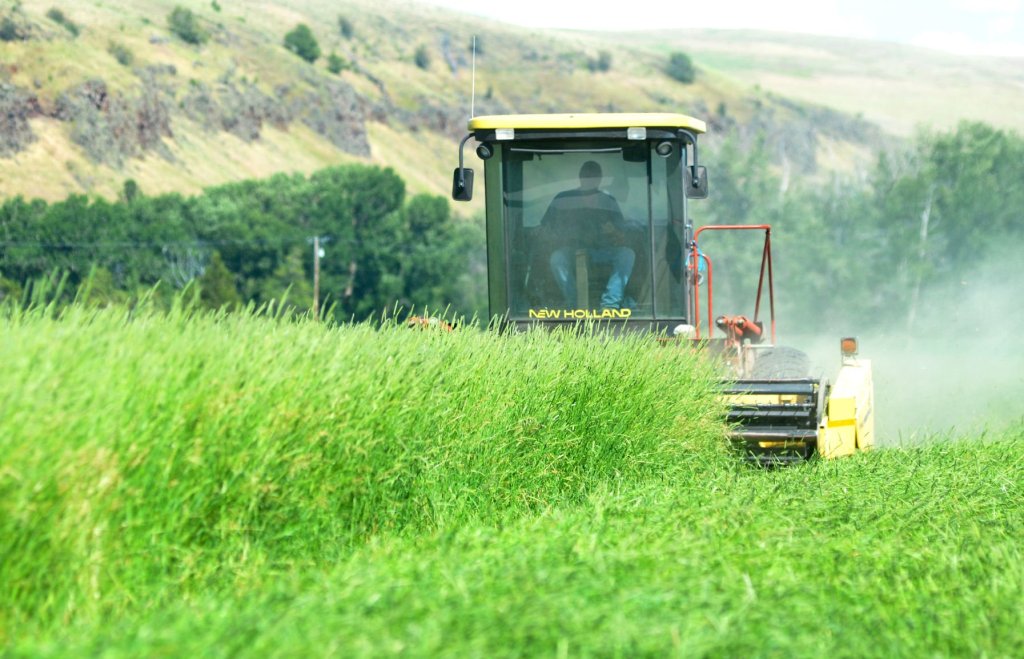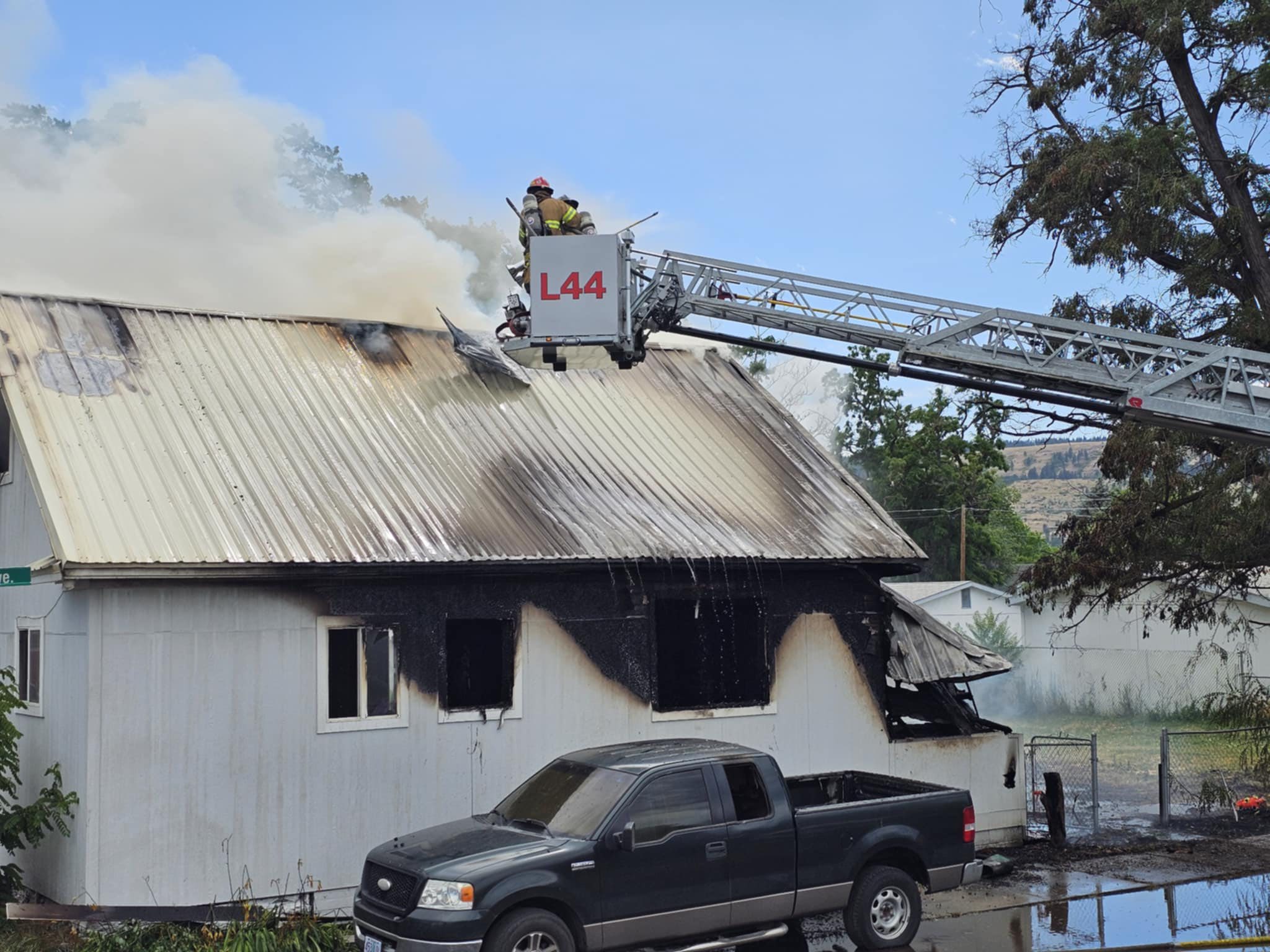Bill would connect state to hotline for agricultural workers
Published 3:00 pm Tuesday, March 21, 2023

- Oregon Senate Bill 255 — the subject of a legislative committee work session on Wednesday, March 22, 2023 — would help pay for a free and confidential mental health helpline for stressed-out farmers, ranchers and other agricultural workers.
SALEM — Bill Hansell, the longtime state senator from Athena, comes from a multigenerational farm family.
He knows that the people who work in agriculture and other natural-resource fields are “an independent, stubborn, private and proud group of individuals.” But they also tend to internalize the pressures they’re facing: “They don’t seek help when they need it.”
Bobby Levy, the state representative from Echo and a farmer herself, also knows about the stresses of agricultural work.
“It takes a myriad of sacrifices to work in agriculture, including extreme physical effort, mental and emotional stress, geographical isolation, a forfeit of social and familial time,” she said. “The work is continuous, year-round. Working in agriculture means that leaving work at home is virtually impossible.”
That’s why Hansell and Levy are co-sponsors of a bill in the Legislature that could take a big step toward offering help to farmers, ranchers, foresters and other workers in the agricultural industry. Their bill, Senate Bill 955, would allocate $300,000 from the state general fund to help pay for the costs of connecting Oregon to an existing service — the AgriStress Helpline — now operating in six other states. The program is intended to give fast, free, confidential help to agricultural workers under stress.
The people answering the calls to the helpline are crisis-support specialists who also receive additional training in mental and behavioral health in agricultural communities, which gives them some insight into the issues rural Oregonians might be facing.
Callers are connected with care that is relevant to their situation and needs. For example, one caller may receive an emotional support crisis intervention, while another caller may receive a risk assessment. All callers are provided with resources in their community and get a follow-up call within 24 hours. The calls are confidential. Hansell and Levy appeared before the Senate Judiciary Committee on Thursday, March 16, to make the pitch for their bill; they were joined by Wallowa County Commissioner Todd Nash, who’s played a key role in the effort.
In emotional testimony, Levy explained what’s at stake: In the past two years in Wallowa County, she said, 14 people have died by suicide. And Nash noted that farmers and ranchers are more than three times as likely than members of the general public to die by suicide.
Allison Myers, the associate dean for Extension and Engagement at Oregon State University’s College of Public Health and Human Sciences, and the interim leader for OSU Extension’s Family and Community Health Program, noted that “our rural folks and our agricultural folks” are among those most vulnerable.
The bill drew no opposition in the March 16 hearing and was scheduled for a March 22 committee work session. But the bill almost got lost in the legislative shuffle.
Starting the discussion
Nash, who serves as the president of the Oregon Cattlemen’s Association in addition to his role as a Wallowa County commissioner, first met Myers at a conference in Central Oregon and launched a discussion.
“He shared with me the challenges that they’ve been facing with regard to suicide,” Myers said.
The conversation was a good fit with work that Myers and her OSU colleagues had been doing regarding mental health in rural Oregon.
Shortly thereafter, Nash invited Myers to join him on one of the YouTube interviews he frequently prepares as part of his work with the Cattlemen’s Assocation. (You can view the video by searching YouTube for the Oregon Cattlemen’s Association channel.)
Through their work, Myers and her OSU colleagues became aware of the AgriStress Helpline, a program run by a national nonprofit organization, AgriSafe Network. The nonprofit works to educate health-care professionals and agricultural workers about the health and safety needs of workers in the agriculture, forestry and fishing industries.
To Myers, it seemed like a good fit for Oregon. She called Nash and said, “Is this a terrible idea? A good idea? I need you to tell me the truth.”
Nash thought it was a great idea and suggested the next step: bringing the idea to Hansell. Hansell didn’t need much persuasion.
“I was not aware of the seriousness of the issue and the statistics about suicide rate among farmers and ranchers,” he said.
He recruited Levy as a co-sponsor — and then the bill was assigned to the Senate Judiciary Committee, where it languished.
“Every committee has far more bills than they’re ever going to hear. They’re making decisions on a limited schedule,” Hansell said.
So he went to the chair of the Judiciary Committee, Sen. Floyd Prozanski, and asked about the status of the bill. Prozanski had questions about the bill, and Hansell encouraged Prozanski to reach out directly to Myers for detailed answers. Myers and Prozanski connected for a phone conversation, and Prozanski was sold.
“The next thing I knew, it was scheduled for a hearing and a work session, so yeah, that conversation made the difference,” Hansell said.
Nash said Prozanski and Myers “made a connection right off the bat,” and added of Myers: “She has a pretty magical way of doing that. She is the star of the show. There’s just no two ways about it.”
Extension Service role
Details of the bill could change during the March 22 work session before the Senate Judiciary, but its current language calls for $300,000 to help establish an endowment to pay for the costs of operating the AgriStress Helpline in Oregon year in and year out. Nash said he thought about $2 million would be enough to fully fund the endowment.
Myers said the cost of signing up with the AgriStress Helpline is $68,000 annually, but additional funds are needed to help spread the word about the program throughout the state. She estimated that all the helpline expenses in Oregon likely would add up to less than $150,000 a year.
OSU’s Extension Service would be a key player in getting the word out about the program, and that makes sense, Myers said, considering the credibility Extension has earned in Oregon’s agricultural community for more than a century.
And, Myers said, it ties into Extension’s increasing work in mental health.
“The way I like to think of it, and the way we often frame it as we’re speaking about mental health and doing mental health through the Extension Service, is that this is part of a long history of us showing up to contribute to solving really important societal issues,” she said.
Added Hansell, “I think the Extension Service is absolutely the right organization that has the credibility with the ag community.”
And, he said, it makes sense for Oregon to sign onto the AgriStress Helpline: “We really need to do what we can. And the thing is, we don’t have to reinvent the wheel, it’s already there. All we have to do is provide what’s needed, so we can tap into something that’s already working. Why wouldn’t we want to do that?”
“It takes a myriad of sacrifices to work in agriculture, including extreme physical effort, mental and emotional stress, geographical isolation, a forfeit of social and familial time. The work is continuous, year-round. Working in agriculture means that leaving work at home is virtually impossible.”
— Oregon Rep. Bobby Levy, R-Echo
• For assistance in an emergency — Dial 988 (Suicide & Crisis Lifeline)
• National Suicide Prevention Hotline — 1-800-273-TALK (8255), press 1 for veterans, 2 for Spanish
• Oregon Warmline Hotline — 1-800-698-2392
• National Substance Abuse Treatment — 1-800-662-HELP (4357)
• Center for Human Development crisis line— 541-962-8800, press option 6
• Wallowa Valley Center for Wellness crisis line — 541-398-1175









